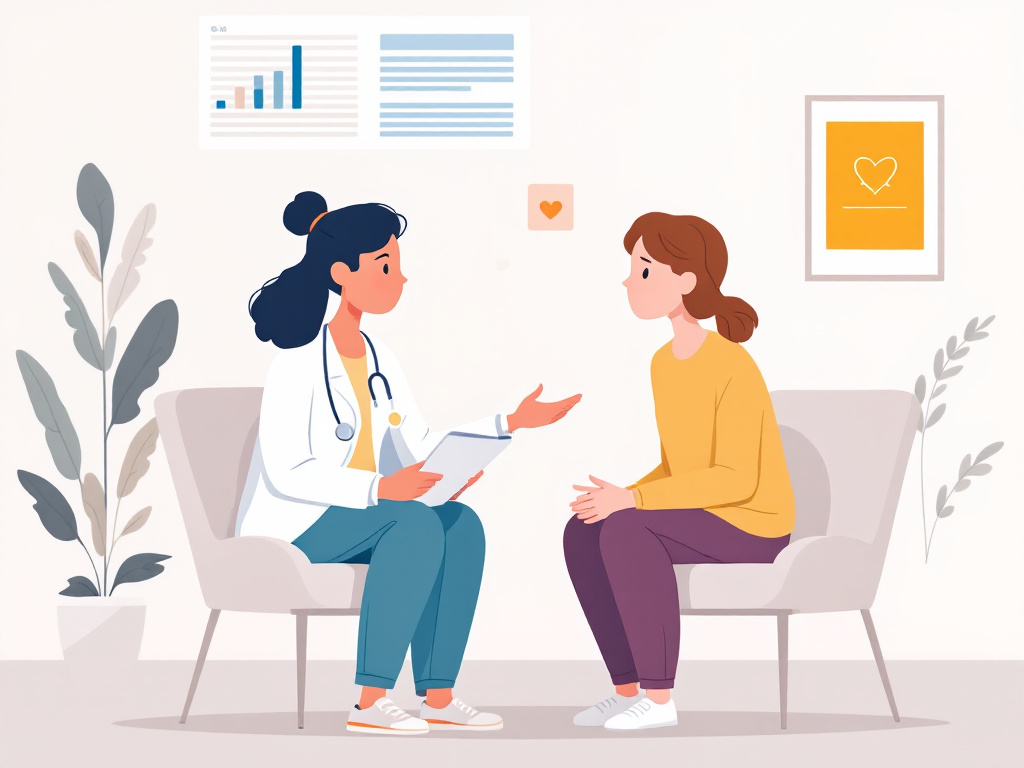You want to support your teen’s well-being through comprehensive psychiatric monitoring and therapy for teens. Combining regular psychiatric evaluation, medication management, and ongoing psychotherapy creates a structured framework that stabilizes mood, improves focus, and helps prevent crisis recurrence. By integrating these elements into a coordinated plan, you ensure your adolescent receives age-appropriate care that adapts to their evolving needs.
Understand monitoring and therapy integration
Effective adolescent mental health care relies on two core components: psychiatric monitoring and therapeutic intervention. Monitoring includes systematic observation of symptoms, side effects, and treatment response, while therapy provides the skills and support your teen needs to navigate emotional challenges.
What psychiatric monitoring involves
Psychiatric monitoring for teens typically includes:
- Symptom tracking through standardized rating scales
- Regular follow-up appointments to assess progress
- Medication oversight, including dosage adjustments and side-effect management
- Collaboration with therapists, school counselors, and primary care providers
This process ensures that changes in your teen’s condition are identified and addressed promptly, reducing the risk of destabilization.
Role of therapy in care
Therapy equips your adolescent with coping strategies and emotional regulation skills. Common evidence-based approaches include:
- Cognitive behavioral therapy to identify and reframe unhelpful thoughts
- Dialectical behavior therapy for emotion regulation and distress tolerance
- Interpersonal therapy to improve communication and relationships
Integrating these therapies with ongoing psychiatric monitoring creates a feedback loop that refines treatment based on real-time progress, a practice often referred to as psychiatry and therapy integration for teens.
Support teen mental health
By weaving together monitoring and therapy, you can help your teen achieve greater stability and resilience. Two key benefits stand out.
Stabilize mood and focus
Medication management under the supervision of a board-certified psychiatrist can correct biochemical imbalances linked to conditions such as depression, anxiety, and ADHD. According to the National Institute of Mental Health, approximately one in five adolescents experiences a mental health disorder each year, making early intervention essential [1]. When dosages are tailored to your teen’s unique chemistry, mood swings become less severe and focus improves.
Reduce crisis recurrence
Routine check-ins and symptom monitoring help catch warning signs before they escalate into emergencies. By combining scheduled therapy sessions with medication oversight, you reduce the risk of hospitalization and crisis interventions. Studies show that shared decision-making between teens and clinicians strengthens engagement, leading to higher treatment satisfaction and sustained motivation [2].
Integrate evaluation and medication oversight
A robust treatment journey begins with a thorough evaluation and continues with vigilant medication review.
Initial psychiatric evaluation
Your teen’s journey often starts with a comprehensive assessment conducted by a child and adolescent psychiatrist. This may include structured interviews such as the Child and Adolescent Psychiatric Assessment (CAPA), which covers anxiety disorders, mood disorders, ADHD, conduct disorders, and more [3]. A detailed history, physical exam, and laboratory tests help rule out medical contributors and confirm an accurate diagnosis. Learn more about the evaluation process in our guide to psychiatric evaluation for teens.
Ongoing medication review
Once a treatment plan is in place, your psychiatrist will schedule regular medication reviews to:
- Monitor therapeutic response and adverse effects
- Adjust dosages in line with developmental changes
- Address concerns about adherence or tolerability
Participation in a teen medication review and stabilization program ensures your adolescent stays on track. If cost is a concern, explore options for psychiatric medication management that accepts insurance.
Collaborate with treatment team
A multidisciplinary approach maximizes the effectiveness of psychiatric monitoring and therapy.
Building trust and rapport
Adolescents thrive when they feel heard and respected. Establishing trust requires clinicians to take a nonjudgmental stance, allow sufficient time for rapport building, and adapt communication to an adolescent’s developmental level. This foundation fosters honest dialogue and accurate symptom reporting [2].
Shared decision-making
Involving your teen in treatment choices promotes a sense of ownership and commitment. Shared decision-making means presenting understandable, age-appropriate information about risks and benefits, then collaborating on a plan that aligns with your teen’s values and goals. Research links this approach to higher treatment satisfaction and continued engagement [2].
Access care through insurance
Ensuring your teen’s treatment is financially accessible prevents gaps in care.
Finding covered programs
Many psychiatric practices and specialized programs participate in major insurance networks. Start by checking your plan’s provider directory or calling customer service to confirm coverage for both therapy and medication management. You can also search for psychiatric care that accepts insurance.
Verifying benefits and costs
When you contact your insurer, be prepared to ask:
- How many therapy and psychiatry visits are covered per year
- What co-pays or coinsurance apply to outpatient services
- Whether prior authorization is needed for certain medications
- If telehealth sessions are reimbursed
If your policy includes mental health parity provisions, your teen is entitled to the same level of coverage as medical/surgical services, reducing out-of-pocket expenses.
Track progress and adjust plans
Ongoing measurement and family collaboration elevate treatment effectiveness.
Measurement based care
Measurement based care (MBC) uses standardized tools to track internalizing and externalizing symptoms throughout treatment, allowing clinicians to tailor interventions dynamically. Instruments such as the Behavior and Feelings Survey (BFS) capture weekly changes with minimal burden, guiding dosage adjustments and therapeutic focus [4].
Family involvement
Family-based therapy engages parents or caregivers as active partners in care. Research shows that involving family members in sessions improves outcomes for eating disorders, ADHD, conduct problems, and other conditions [5]. When families learn communication techniques and behavioral strategies, they create a more supportive home environment that reinforces therapeutic gains.
By systematically combining evaluation, medication oversight, therapy, and collaborative practices under insurance-friendly models, psychiatric monitoring and therapy for teens offers your adolescent a clear pathway to stability, resilience, and long-term wellness. If you’re ready to take the next step, explore our resources on therapy and medication oversight for adolescents and psychiatric evaluation and treatment that accepts insurance.











